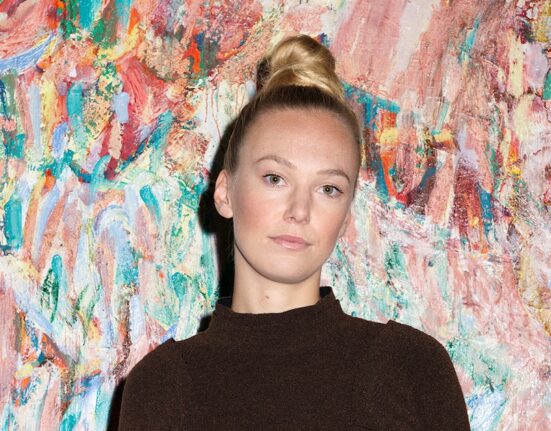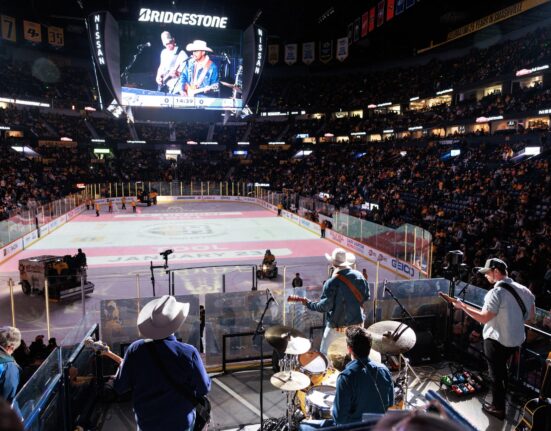Two significant paintings by Joan Mitchell created decades apart sold in consecutive weeks at auctions last month in New York, each smashing the previous US$16.6 million record for the abstract expressionist’s artwork set in 2018.
Mitchell’s Untitled, 1959, sold for US$25 million, nearly US$29.2 million when fees were added, at Christie’s on the evening of Nov. 10, followed a week later by the sale of Sunflowers, 1990-91, at Sotheby’s for US$24 million, nearly US$28 million with fees added.
The blockbuster sales set a new benchmark for works by Mitchell, proving her art can fetch the kind of prices that are common for her male peers, artists who include Jackson Pollock, Willem de Kooning, and Franz Kline.
“That is an incredible statement that the market is making. If you’re waiting for something to arrive, it’s arrived,” says Matthew Newton, art advisory specialist at UBS.
Overall, total sales of works by female artists rose 10% from a year earlier to US$186.3 million (without fees) over the eight evening sales held in New York by the biggest auction houses—Christie’s, Phillips, and Sotheby’s, with deep bidding leading to records for several artists, including Jadé Fadojutimi, Amy Sillman, and Marina Perez Simão, according to an analysis by ArtTactic, a London-based analysis company.
Advertisement – Scroll to Continue
Still, despite the boost in year-over-year sales, the value achieved for works by female artists represented just 12% of the total for the eight sales, ArtTactic found. And there’s this: The prices fetched for Mitchell’s paintings placed them 15th and 16th behind prices achieved for works by male artists at those sales, ArtTactic found.
It’s clear the art market has a long way to go before it values works by women equally to those by men. Yet, change is underway.
“You have a combination of new and young ‘ultra-contemporary’ women artists who are doing really well at auctions—those are the ones that are blowing past their estimates. Then you also have curators and dealers and collectors looking back and finding artists whose market may have been overlooked because they were women,” says Rachel Rosan, senior director of fine art at global art advisory Gurr Johns in New York. “Artists like Lee Krasner or even someone like [Yayoi] Kusama—who is the number one selling woman artist of all time—or Ruth Asawa, these are markets that laid dormant for many, many years and now are being appreciated.”
Advertisement – Scroll to Continue
Evidence of lingering disparity can be found in what collectors own. A November report from Art Basel and UBS found works by artists identified as female comprise 39% of collections created by wealthy individuals, down 3% from a year earlier, which, the report said, is despite “the much-discussed increase in focus on female artists in exhibitions and sales over the last few years.”
One reason is the availability of art by women in galleries and at auction. “There are either less female artists’ works available to collectors and (or) less being bought by them over time,” the report said. It also noted that only 39% of collector spending was on works by female artists both this year and in 2022.
A good reason for this is that until 40 or 50 years ago, men were primarily the ones given the “time and space to make art,” Newton says. “We’ll be dealing with the repercussions of that for a very long time.”
Advertisement – Scroll to Continue
Rosan agreed. “It’s going to take a generation or more to find balance and equity.”
There are some signs of movement, however. The wealthiest of collectors, those who buy at least US$10 million each year, are spending more on art by women and that’s changing the complexion of their collections, the Art Basel-UBS report said. The amount spent on works by female artists by these collectors rose from a 43% share in 2021 to a 55% share in 2023, the report said. The percentage of art by women in their collections similarly rose from 43% in 2021 to 54% in 2023.
Signs of change are also evident in a measure ArtTactic uses to gauge the performance of artworks sold at auction. The company’s analysts compared the hammer price achieved for each work to the average of a presale estimate range. Neither figure includes the fees added by the auction houses.
Advertisement – Scroll to Continue
By this measure, works by female artists dominated the top-25 performing artists of the New York evening sales, representing nearly two-thirds of the list. Among the top 10, seven were works by women.
The strongest performance by a female artist was by Barbara Chase-Riboud’s 1990 bronze sculpture La Musica / Amnesia, which sold for US$510,000, more than four times a high estimate of US$120,000 at Sotheby’s contemporary evening sale on Nov. 12—an auction record for the 84-year-old artist and author.
“I’m not surprised that it did much better than the estimate, but it is impressive by how much,” says Newton, who had worked with the artist in a previous role at Michael Rosenfeld Gallery. Overall, Newton says his impression of the New York sales was that the “excitement and strength and these very statement-like purchases, seemed to happen around more of the women artists than not.”
Advertisement – Scroll to Continue
Newton also noted the most energetic sales of the season featured works once owned by female collectors. The Emily Fisher Landau collection at Sotheby’s totaled US$351.6 million and included Pablo Picasso’s Femme à la montre, which sold for US$121 million (both amounts are before fees), while the auction house’s contemporary sale was led by 16 works onced owned by California collector Chara Shreyer.
In fact, that contemporary sale opened with Sillman’s Junker 1, which sold for US$775,000, and an untitled sculpture by Lee Bontecou that sold for US$1.3 million. Both results, which exclude fees, were significantly above estimates. In Sotheby’s “The Now” sale of ultra-contemporary works, seven lots out of the first 10 were by women. “That wouldn’t have happened even five years ago,” Rosan says.
ArtTactic’s top outperformers included several works by ultra-contemporary artists, although the late abstract painter Agnes Martin also made the list with the sale of Grey Stone II, 1961, from Fisher Landau’s collection. The painting achieved an artist auction record of US$16 million, before fees, double a high estimate.
“Irrespective of gender, that work was extraordinary, and it made an extraordinary price because of that. That’s really the goal, right?” Rosan says. “We’re getting there, it’s going to take time to catch up. But people are waking up to diversity in all shapes and sizes in [all] industries, and that includes the art market.”







